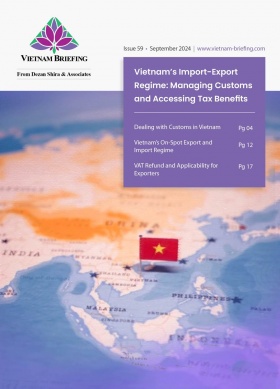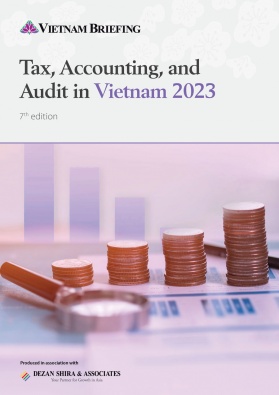Stuck in Vietnam? A Guide to Exit Delays Over Tax Obligations
Vietnam’s tax authorities have intensified their scrutiny of outstanding tax obligations, leading to an increasing number of individuals being temporarily banned from leaving the country. This article will outline the key reasons why temporary exit postponements may occur, the steps to take if you find yourself in this situation, and strategies for avoiding it altogether.
As of May 2025, Vietnam’s tax authorities have issued nearly 61,500 temporary exit suspension notifications due to outstanding tax obligations totaling VND 83 trillion (US$3.2 billion). Among these, 36,646 taxpayers have abandoned their business addresses, resulting in tax arrears of VND 13.41 trillion (US$517.26 million). The tax authority has also successfully collected VND 4,955 billion (US$191.16 million) from 7,300 taxpayers.
The recent developments indicate that the Tax Department is increasing its efforts to collect taxes from companies/representative offices that have filed for dissolution but have not fulfilled their tax obligations, as well as from those that have abandoned their business addresses.
While these measures showcase effective tax collection efforts, exit restrictions due to tax underpayment can significantly disrupt the lives and work of those impacted, including expatriates, and may also lead to operational disruptions for businesses. Understanding this issue is therefore crucial for businesses to mitigate potential risks to their operations and employees.
Coordinating mechanism between the tax and immigration departments
On May 12, 2025, the Tax Department and the Immigration Department signed a Regulation on electronic information exchange concerning temporary exit suspensions.
Under the new mechanism, information about individuals and organizations that violate tax obligations will be exchanged, verified, and processed electronically for temporary exit suspension measures. This approach will enhance the efficiency of tax debt management, foster a fair and transparent business environment, and help prevent budget losses.
The regulation includes 10 articles that specifically address the scope, principles, parties involved, exchange contacts, data transmission frequency, incident management procedures, and information reconciliation mechanisms, alongside five core requirements:
- Secured transmission: The transmitted and received information must ensure safety, confidentiality, and continuity;
- Official usage only: The information and data exchanged between the two agencies is official information, serving only professional work according to legal regulations, for the right professional purposes, and must not be provided to a third party without the provider’s consent;
- No parallel exchange: Information exchanged electronically must not be exchanged in parallel through other methods. In cases where this is not possible, it must be done in the forms prescribed in Circular 79/2020/TT-BCA;
- Real-time transmission: The frequency of data transmission is in real-time; and
- Two-phased reconciliation mechanism: Reconciliation must be done manually via email in the first 3 months, then upgraded to an electronic reconciliation system via the transmission line between the two agencies.
What are the legal documents authorizing exit suspension due to tax debts?
Vietnam’s General Department of Taxation implements departure restrictions based on the following legal provisions:
- Law No. 49/2019/QH14 on Exit and Entry of Vietnamese Citizens;
- Law No. 47/2014/QH13 on Entry, Exit, Transit, and Residence of Foreigners in Vietnam;
- Law No. 38/2019/QH14 on Tax Administration;
- Decree No. 49/2025/ND-CP, dated February 28, 2025, which provides exit suspension thresholds; and
- Decree No. 126/2020/ND-CP, dated October 19, 2020, which provides guidance on the Law on Tax Administration.
When can individuals be prevented from leaving Vietnam due to tax debts?
Article 3 of Decree No. 49/2025/ND-CP outlines the criteria and timeframes for temporary exit suspensions due to tax debts as follows:
- Business individuals and household business owners with tax arrears of VND 50 million (US$1,925) or more that are overdue by more than 120 days;
- Legal representatives of enterprises, cooperatives, and cooperative unions with tax arrears of VND 500 million (US$19,250) or more that are overdue for over 120 days; and
- Representatives of businesses that no longer operate at their registered addresses, holding tax arrears that are overdue and unpaid for more than 30 days after notification of the temporary exit suspension by the tax authority.
Moreover, the following individuals will be subject to temporary exit bans if they have tax debts that are overdue and have not settled their tax obligations prior to departing Vietnam:
- Vietnamese citizens intending to emigrate;
- Vietnamese citizens living overseas; and
- Foreigners.
Who is authorized to impose, extend, and cancel an exit suspension?
According to Decree 126/2020/ND-CP, the authority to impose, extend, and cancel an exit suspension is as follows:
- The head of the taxpayer’s supervisory tax authority is authorized to impose an exit suspension in cases specified in the decree.
- The official who imposes the exit suspension also holds the authority to extend or cancel it.
- The official must cancel the exit suspension within 24 hours after the taxpayer fulfills their tax obligations.
What are the procedures for imposing, extending, and canceling an exit suspension?
The procedure for implementing an exit suspension is outlined in Decree 126/2020/ND-CP. We explain below:
Step 1: Determination of tax payment status
Once taxpayers’ tax obligations are assessed, the tax authority compiles a list of individuals subject to exit suspension. The authority then sends a suspension notice to both the immigration authority and the affected taxpayers, using Form No. 01/XC in Appendix III of the decree.
Step 2: Notice of exit suspension
Upon receiving the suspension notice, the immigration authority must, on the same day, prevent the listed individuals from departing Vietnam and publish the suspension notice on its website.
Step 3: Monitoring fulfillment of tax obligations
Exit suspensions or cancellations are adjusted based on whether the taxpayer fulfills their tax obligations:
- Tax obligations fulfilled within 24 hours: The tax authority issues a suspension cancellation notice and sends it to the immigration authority, using Form No. 02/XC in Appendix III.
- Tax obligations unmet within 30 days before the suspension period expires: The tax authority issues an extended suspension notice to both the immigration authority and the individual, also using Form No. 02/XC.
Step 4: Notification process
The suspension notice, extended suspension notice, and cancellation notice are sent by post or electronically (if possible) and posted on the tax authority’s website. A notice is deemed successfully delivered once posted online, even if the mailed version is returned.
How long do temporary exit suspensions last?
For Vietnamese citizens
Under Point b, Clause 1, Article 38 of the 2019 Law on Immigration of Vietnamese Citizens, the exit suspension period ends once individuals fully comply with judgments or decisions issued by competent authorities as stipulated by law. If the specified exit suspension period expires without being formally canceled or extended, the suspension will automatically be lifted.
For foreigners
According to Article 28 of the 2014 Law on Entry, Exit, Transit, and Residence of Foreigners in Vietnam, an exit suspension cannot exceed three years but may be extended as necessary.
Notably, exit suspensions for tax debts do not apply to individuals serving prison sentences or to those required to travel abroad to provide evidence under the Law on Judicial Assistance.
How to track your tax obligation information online
Vietnamese and foreign individuals can monitor their tax payment status through the eTax portal or the eTax Mobile app on mobile devices or the Tax Authority’s website. These platforms provide information on tax settlements, outstanding tax debt, and other individual tax details. Taxpayers can make payments, check obligations, view tax notices, and access various support services.
All individual tax information is kept strictly confidential. Users can access their personal data by entering their login credentials (username and password) or by using secure biometric authentication methods, such as fingerprint or FaceID (on eTax Mobile).
Conclusion
To avoid unnecessary complications when exiting Vietnam, individuals—especially those involved in production and business—should closely monitor their tax payment status. Staying informed ensures that rights are protected, obligations are fulfilled, and tax responsibilities are effectively managed.
This article was originally published November 12, 2024. It was last updated May 22, 2025.
(With inputs from Doan Thi Yen Luy)
About Us
Vietnam Briefing is one of five regional publications under the Asia Briefing brand. It is supported by Dezan Shira & Associates, a pan-Asia, multi-disciplinary professional services firm that assists foreign investors throughout Asia, including through offices in Hanoi, Ho Chi Minh City, and Da Nang in Vietnam. Dezan Shira & Associates also maintains offices or has alliance partners assisting foreign investors in China, Hong Kong SAR, Indonesia, Singapore, Malaysia, Mongolia, Dubai (UAE), Japan, South Korea, Nepal, The Philippines, Sri Lanka, Thailand, Italy, Germany, Bangladesh, Australia, United States, and United Kingdom and Ireland.
For a complimentary subscription to Vietnam Briefing’s content products, please click here. For support with establishing a business in Vietnam or for assistance in analyzing and entering markets, please contact the firm at vietnam@dezshira.com or visit us at www.dezshira.com
- Previous Article Vietnam Partners with Germany and Austria for Agriculture and Technology Developments
- Next Article Vietnam Plans Special Policies for Private Sector: Tax Incentives and Barrier Removals








